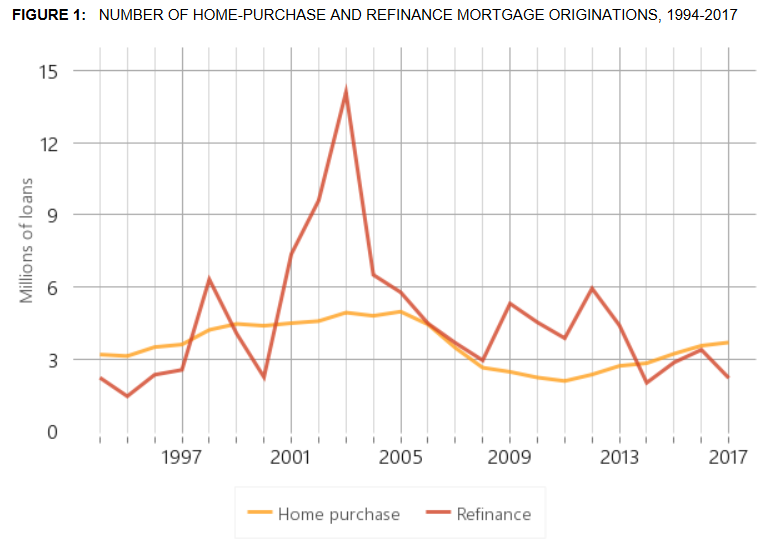Marketer Disclosure Many or all of the products featured here are from our partners who compensate us. This may affect which items we discuss and where and how the item appears on a page. However, this does not influence our examinations. Our viewpoints are our own. After retirement, without regular earnings, you may often fight with finances.
A reverse home mortgage is a home mortgage that permits homeowners 62 and older to withdraw some of their home equity and convert it into cash. You do not need to pay taxes on the profits or make monthly home loan payments. You can use reverse mortgage earnings however you like. They're typically allocated for expenditures such as: Debt combination Living expenditures House enhancements Assisting kids with college Purchasing another house that may better meet your requirements as you age A reverse home mortgage is the opposite of a conventional mortgage; instead of paying a lending institution a regular monthly payment monthly, the loan provider pays you. You should participate in therapy, a "customer info session" with a HUD-approved therapist, before your HECM loan can be moneyed. This guideline is meant to ensure that you comprehend the cost and effects of getting this type of loan. Therapists work for independent companies. These courses are offered at a low expense and in some cases they're even free.

For the majority of customers, this indicates paying off your staying home mortgage financial obligation with part of your reverse home loan. This is easiest to accomplish if you have at least 50% equity approximately in your home. You have a couple of options, but the simplest is to take all the cash simultaneously in a swelling amount. what are the interest rates on reverse mortgages.
You can likewise pick to receive regular periodic payments, such as once a month. These payments are described as "period payments" when they last for your entire lifetime, or "term payments" when you receive them for just a set duration of time, such as 10 years. It's possible to take out more equity than you and your lender anticipated if you select tenure payments and live an exceptionally long life.
This enables you to draw funds just if and when you need them. The benefit of a line-of-credit method is that you only pay interest on the money you've in fact borrowed. You can also utilize a mix of payment choices. For instance, you might take a small lump sum upfront and keep a line of credit for later on.
For example, the home will go on the marketplace after your death, and your estate will get cash when it sells. That money that must then be used to settle the loan. The complete loan quantity comes due, even if the loan balance is greater than the house's value, if your successors decide they wish to keep the house.
8 Easy Facts About How Do Lenders Make Money On Reverse Mortgages Shown
Many reverse mortgages consist of a clause that does not allow the loan balance to surpass the value of the home's equity, although market changes might still result in less equity than when you secured the loan. It's possible that your estate might provide sufficient other properties to enable your successors to settle the reverse mortgage at your death by liquidating them, but they may otherwise not be able to get approved for a regular home loan to settle the financial obligation and keep the household home.
You'll pay much of the very same closing expenses needed for a conventional house purchase or refinance, however these charges can be higher. Fees lower the amount of equity left in your home, which leaves less for your estate or for you if you decide to offer the house and settle the mortgage.
Costs are typically financed, or constructed into your loan. You do not write a look for them at timeshare websites closing so you might not feel these costs, but you're still paying them regardless. You need to have your house evaluated, contributing to your costs. The loan provider will wish to be sure that your house in great shape prior to composing the loan.
A reverse home mortgage lets older property owners take advantage of their house's equity for a lump sum payment, regular payments, or in the kind of a credit line. Reverse mortgages don't need to be repaid until the homeowner passes away or moves out of the residence. Stays in care facilities for less than a year are all right.
Interest accumulates over the life of the loan, so the quantity necessary to settle the home loan will probably be significantly more than the original loan earnings - how do buy to rent mortgages work.

A reverse home mortgage is a method for house owners ages 62 and older to utilize the equity in their home. With a reverse home mortgage, a homeowner who owns their home outright or a minimum of has substantial equity to draw from can withdraw a portion of their equity without needing to repay it until they leave the home.
Top Guidelines Of How Many Types Of Reverse Mortgages Are There
Here's how reverse mortgages work, and what property owners time share attorney considering one requirement to understand. A reverse home mortgage is a kind of loan that allows homeowners ages 62 and older, usually who have actually paid off their home mortgage, to obtain part of their home's equity as tax-free income. Unlike a regular home mortgage in which the property owner pays to the lender, with a reverse mortgage, the lender pays the homeowner (what are interest rates today on mortgages).
One of the most popular types of reverse home loans is the Home Equity Conversion Home Loan (HECM), which is backed by the federal government. Despite the reverse mortgage principle in practice, qualified property owners might not be able to obtain the whole value of their home even if the https://blogfreely.net/lundur5otj/your-a-href-en-wikipedia-org-wiki-mortgage_law-overall-regular-monthly mortgage is paid off.